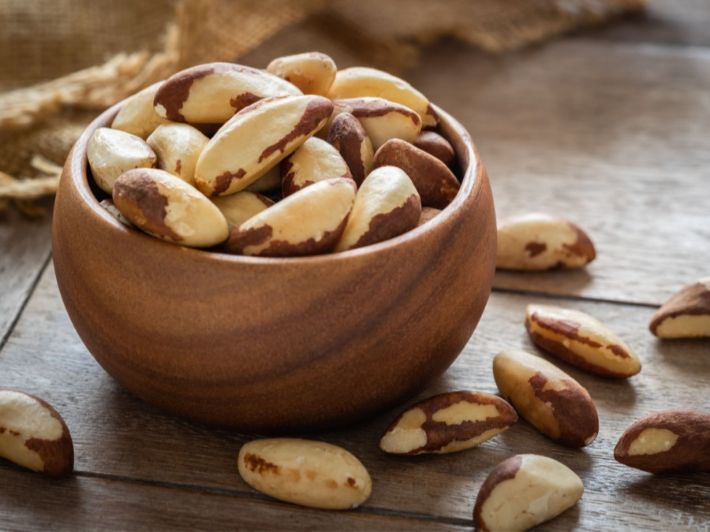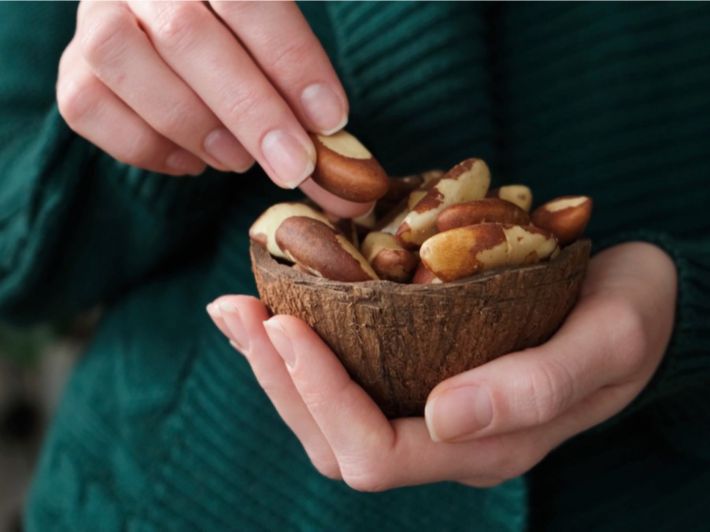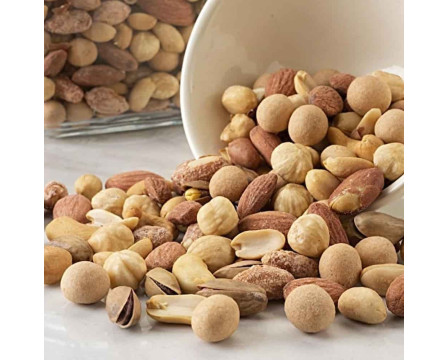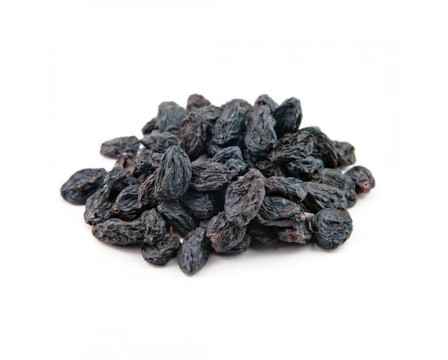
What are Brazil nuts?
Brazilian nuts, also known as Brazil nuts, are derived from the Bertholletia excelsa tree found in the rainforests of the Amazon in South America.
They are triangular-shaped hard nuts with a soft inner filling resembling peanuts, but larger in size compared to peanuts and almonds.
Each nut, encased in a hard shell similar to a coconut, contains approximately 10 to 24 edible Brazilian nut kernels.
Brazil Nut Tree
It is a large tree native to the Amazon rainforests in South America. It can reach heights of up to 50 meters and can live for hundreds of years.
The tree has a straight cylindrical trunk that can reach a diameter of up to two meters and is covered with smooth gray bark. It produces large spherical fruits with a diameter of about 10-15 cm and weighing up to 2 kg.
The Brazilian nut tree is important for the ecosystem of the Amazon rainforests, and it also has economic value for the inhabitants of the region.
The nuts are harvested from the wild and sold locally and internationally as a food product, and the trees are also used in the timber industry. Additionally, the bark and leaves are used in traditional medicine.

Importance of Brazil Nuts for Public Health
These nuts offer a wide range of health benefits and essential nutrients, serving as a rich source of healthy fats, protein, fiber, and selenium.
In addition to promoting heart health and reducing inflammation, they can boost the immune system. Furthermore, they are beneficial for skincare, weight management, anxiety reduction, improved digestion, and enhancing male fertility.
Brazilian Nuts for Thyroid Health
Selenium is essential for healthy thyroid function, and having adequate selenium in your diet can reduce the risk of developing Hashimoto's disease, Graves' disease, and thyroid cancer.
Brazil Nuts for Diabetes
Some studies suggest that the selenium found in Brazilian nuts can lower insulin levels, increase insulin sensitivity, and improve blood sugar levels in individuals with type 2 diabetes.
Brazil Nuts for Reducing Inflammation
Brazil nuts are rich in antioxidants, such as vitamin E and phenols, which can combat free radicals, reduce oxidative stress and inflammation, and protect against diseases such as heart disease, diabetes, and some types of cancer.
You might also find interesting: A comprehensive nuts guide
Brazil Nuts for Bone Health
Brazil nuts contain calcium, magnesium, and other essential minerals for bone health. One ounce of Brazil nuts can provide about 25% to 33% of the recommended daily dose of magnesium, contributing to increased bone density and protection against fractures, especially in older individuals.
Brazilian Nuts for Brain Health
Low selenium levels are associated with neurological conditions such as Parkinson's and Alzheimer's diseases. The antioxidants found in Brazilian nuts, including selenium, can support brain health. Some research also indicates that increasing selenium intake can improve mood.
Brazil Nuts for Men's Health
Consuming Brazilian nuts may increase testosterone levels due to their high selenium content. Studies have shown that it can improve testosterone levels and sperm quality, thereby enhancing fertility.
Calories in Brazil Nuts
- Calories: 704.2
- Calories from Carbohydrates: 49.08
- Calories from Fat: 597.9
- Calories from Protein: 57.28
- Nutritional Values in Brazilian Nuts
- Energy: 656 kcal
- Protein: 14.32 g
- Fat: 66.43 g
- Carbohydrates: 12.27 g
- Calcium: 160 mg
- Iron: 2.43 mg
- Sodium: 3 mg
- Vitamin C: 0.7 mg
Hazards of Brazil Nuts
Despite the numerous health benefits of Brazilian nuts, consuming a large amount of them can lead to side effects, including:
- Weight gain: Brazilian nuts have a high calorie content and can cause weight gain when consumed in large quantities. It is important to consume appropriate amounts of Brazilian nuts to reap their health benefits without causing harm to the body.
- Allergic reactions: Some individuals, especially those allergic to peanuts, may experience allergic reactions to Brazilian nuts. It is advisable to avoid Brazilian nuts if you have this type of allergy and to stop consuming them if you notice any allergic reactions to prevent complications.
- Selenium toxicity: The high selenium content in Brazilian nuts contributes to their health benefits, but excessive consumption can lead to selenium toxicity. While consuming small amounts of Brazilian nuts is beneficial, eating large amounts can lead to selenium toxicity.

How Many Brazil Nuts to Eat Daily
To avoid these potential risks, it is advisable not to exceed the body's daily requirements for selenium. An adult needs 400 micrograms of selenium daily, which is equivalent to consuming one to three Brazilian nuts per day at most.
Ways to Enjoy Brazilian Nuts
Here's how to enjoy Brazilian nuts and reap their benefits:
Brazilian nuts can be consumed as a snack between meals or added to other foods, whether raw or roasted. Additionally, Brazilian nuts can be incorporated into various dishes or served with oatmeal, salads, or cakes.
Roasting Brazil Nuts at Home
You can roast Brazilian nuts in the oven by preheating to 350 degrees Fahrenheit, placing the nuts on parchment paper on a baking sheet, and baking for 5 minutes, stirring, then baking for another 5 minutes. After cooling, you can add salt, herbs, or spices before consuming.
Ultimately, Brazilian nuts are a versatile and delicious dietary choice, offering great taste and high nutritional value. Let's make sure to enjoy this natural treasure and reap its health benefits by incorporating it into our daily food routine.







Leave a Comment